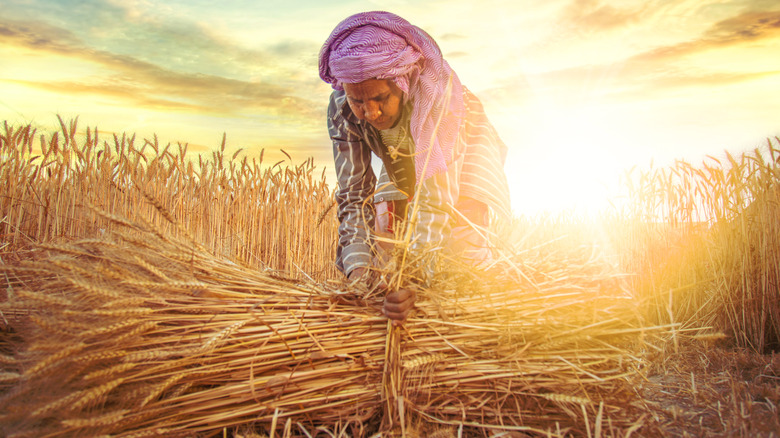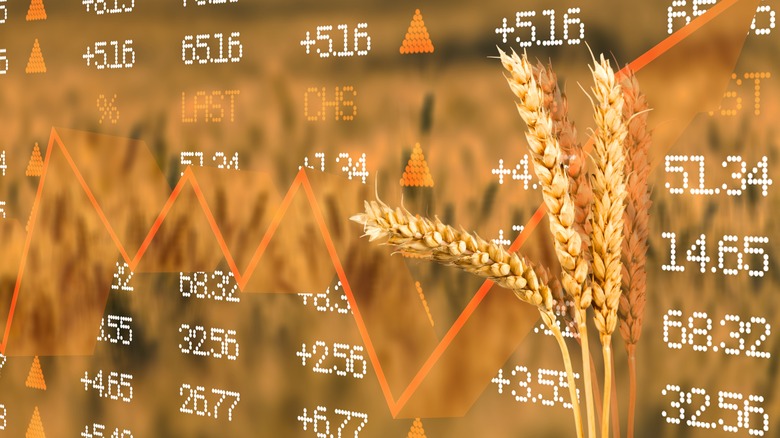How India's Wheat Export Ban Is Affecting Global Food Prices
When Russia invaded Ukraine, The New York Times said it cut off over a quarter of the world's wheat supply by blocking Ukrainian grain exports and forcing many countries to ban Russian imports. According to Quartz, countries like India stepped up their exports in an effort to rebalance the global wheat shortage, but when its own domestic issues arose, it went back on its deal and issued an export ban.
The Times of India states that the war in Ukraine caused grain supply disruptions and drove global wheat prices up 40% since the beginning of 2022. Battling its own inflation issues, India's government moved to capitalize on the shortage and engage with new markets. The second-largest wheat producer in the world, India anticipated a record-breaking harvest this year but instead got hit with a massive heatwave that damaged crops and significantly reduced yield.
Rising domestic inflation and the crop-damaging heatwave caused India to reverse course and ban wheat exports less than a month after the country announced that it would sell grains to areas in short supply. While Egypt is said to be in talks with India in hopes of an exemption from the ban, it seems that global supply and prices will continue to be affected.
The export ban affects prices on foods from cereal to steak
According to Quartz, the lack of Russian wheat exports due to the war in Ukraine, poor harvests, and countries depleting global supplies by heavy buying practices caused wheat prices to increase by a whopping 60% from February to May of 2022. In addition to those issues, India's recent decision to join over a dozen countries banning exports of various food products will likely increase food insecurity and global prices.
The Washington Post explains that any food items that include grains as an ingredient will be affected by the shortage because the wheat and grain markets are interconnected. It's not just bags of flour and loaves of bread that will get a price hike; Think cereal, beer, and pasta also. Humans aren't the only ones relying on wheat and grains as part of our diets. The cost of livestock feed utilizing corn, barley, and wheat will become even more expensive, and meat producers will have to raise global prices on beef, pork, and chicken.
As food supply disruptions continue, more countries may move to conserve domestic resources and ban exports, worsening dire shortages. While some countries may be exempt from India's export ban, CNBC says that the United States and European Union will work to strengthen bonds and trade agreements in an effort to improve food supply and insecurities.

